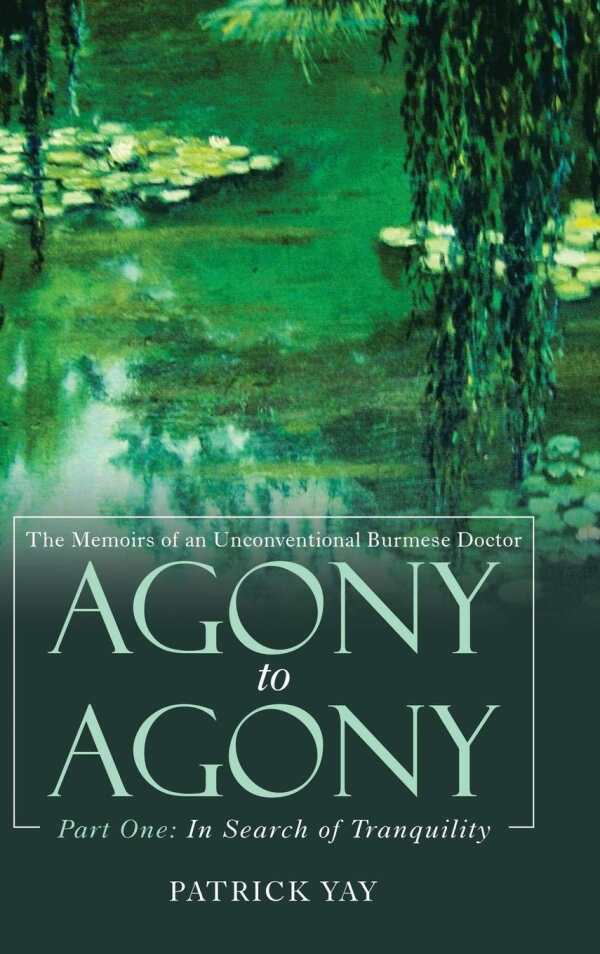Agony to Agony
In Search of Tranquility
Agony to Agony is both a history and a memoir. It gives an insider’s view of Burma during turbulent political times.
Patrick Yay’s memoir Agony to Agony is about life in postcolonial Burma (now Myanmar) and recounts Yay’s time as a medical student and doctor.
The British colonization of Burma is at first presented as a comparatively halcyon time, given the military coup d’etat that replaced it. The new government was headed by General Ne Win, whom the book characterizes as odious—a failed university student whose lack of personal success rendered him anti-intellectual. The general is shown wielding his power to repress intellectual and professional classes.
The book equates Ne Win with Mao Zedong and Stalin for his cruelty to his people and for his cultural eradication, indicating a disgust for Ne Win that becomes its hammering refrain. Multiple narrative moments are intruded upon to reiterate how he embodies evil. Repetition happens elsewhere as well, including with the citation of a study of Myanmar whose recurring mention is distracting.
The text is exhaustive in its treatment of the postcolonial ruling body. It tells a rich story, if one that is often bogged down in the minutiae of mentioned political figures with similar sounding names. Leaders are easy to conflate with one another in this ranging text. A sophisticated critique of socialism at one point seems to praise Marx and Engels as true socialists, as opposed to the socialism that Ne Win enacts, though this impression is controverted by the book’s conclusion.
The book’s cultural, political, and theoretical examination constitutes its first third. The rest of the book follows Yay as he grows from a rebellious student into a doctor of some repute. These sections relate a fascinating story. Yay comes across as an intelligent idealist who was rebuffed by political machinations. His narration maintains a kind of quiet anger as he expresses the belief that talent and sincerity should merit professional positions. Professional frustrations are balanced as the book champions those who fight for what is right for the Burmese people.
Yay’s story includes an informed, contextualized spiritual evolution whose turns are entertaining and that develops as Yay realizes that the riches of the earth are illusory and that karma operates independently and universally. His descriptions emphasize personal growth rather than professional development, though the two themes interact in the book. Praising great figures who renounced the material world, including Jesus, the Buddha, and Socrates, as the best teachers, the text argues that life is difficult for all people, no matter their socioeconomic status or social standing.
Agony to Agony is both a history and a memoir. It gives an insider’s view of Burma during turbulent political times that helps with understanding Myanmar today.
Reviewed by
Philip J. Kowalski
Disclosure: This article is not an endorsement, but a review. The publisher of this book provided free copies of the book and paid a small fee to have their book reviewed by a professional reviewer. Foreword Reviews and Clarion Reviews make no guarantee that the publisher will receive a positive review. Foreword Magazine, Inc. is disclosing this in accordance with the Federal Trade Commission’s 16 CFR, Part 255.

